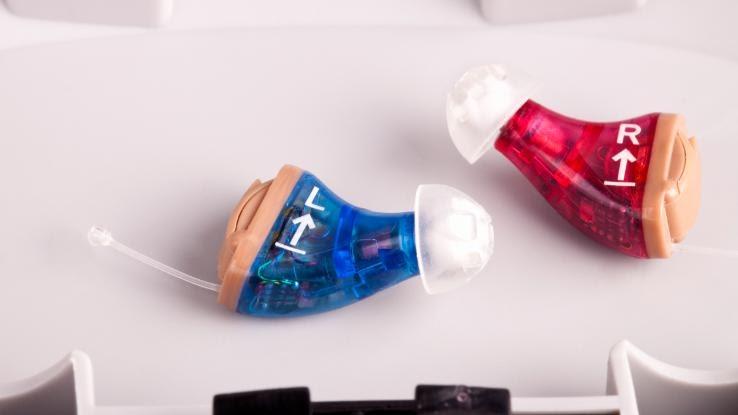How Long Does It Take to Get Financial Aid Refund Check

People with hearing loss may soon have a much easier time buying hearing aids, as a new federal rule paves the way for less expensive devices that are available over the counter (OTC).
In October 2021, the Food and Drug Administration (FDA) announced a landmark rule change that will allow Americans to buy some types of hearing aids in stores and online without a prescription. We're taking a look at what inspired the change and how it can help people living with hearing loss.

About 15 percent of American adults say they have trouble hearing — that's nearly 40 million people. Hearing aids can make a big difference in the daily lives of people with hearing loss, yet only one out of five people who need hearing aids actually has them.
One main barrier to getting hearing aids is that they don't come cheap. Currently, you can expect to pay around $1000 to $6000 for each device (and most people need two). And most insurance plans don't cover the cost of hearing aids. By opening up the market to OTC versions from a wider range of manufacturers, the new rule can drive down costs and make these devices more accessible.
The prescription requirement can also be a barrier to access. Getting prescription hearing aids can mean several visits to a hearing specialist — and that means arranging transportation on top of any costs for the visits. OTC devices would make the process quicker and more convenient for many consumers.
What Does the New FDA Rule Change Mean?

Once the rule is finalized, you'll be able to buy hearing aids directly from a store or online retailer, fit them yourself and possibly even self-adjust their settings in ways current hearing aids don't allow.
But this won't be an unregulated free-for-all. The FDA will still regulate OTC hearing aids to ensure that they're safe and effective for adults with mild to moderate hearing loss. Companies will also have to include warnings and information about when to see your doctor for prescription hearing aids rather than going the OTC route.
By making it easier for companies to get into the hearing aid market, the rule may encourage innovation and lead to better, cheaper products for people with hearing loss. "Soon, millions of people with mild to moderate hearing loss will finally have lower-cost hearing aid options — and more options mean more competition in the market, further driving down the cost for consumers," Senators Elizabeth Warren and Chuck Grassley said in a statement to NPR. "This is terrific news."
What Kind of Hearing Aids Will Be OTC? Will I Still Need a Prescription?

The question of whether or not you'll still need a prescription to buy hearing aids depends on the severity of your hearing loss. OTC hearing aids will be geared towards those with mild to moderate hearing loss, while people with more severe hearing problems will still need a prescription for their devices.
Think of it like eyeglasses. You can buy basic reading glasses at the drugstore, but you still need a prescription from your eye doctor to get glasses for more severe vision problems.
How Much Will OTC Hearing Aids Cost?

Although plans for OTC hearing aids are still in the early days, some experts have high hopes that hearing aid prices will soon hit a new low.
"These over-the-counter devices should cost $200 to $800. And they'll be produced by companies like Bose, Samsung and maybe Apple," Dr. Justin Golub, an ear specialist at Columbia University Medical Center, told CBS News. "These are the really innovative companies that always compete to drive costs down."
As popular tech companies get in on the hearing aid market, the devices may become not only cheaper but sleeker as well. And improving the design of these wearable devices may help companies appeal to younger people with hearing loss.
When Will Hearing Aids Be Sold Over the Counter?

While the FDA proposal is a huge step towards making OTC hearing aids available, it's not clear exactly when you'll start seeing them on shelves. First, the proposal goes through a 60-day public comment period. Then the FDA has 180 days to publish the final regulations. Based on this timing, experts are hopeful that we may start seeing OTC hearing aids sometime in 2022.
"The agency is committed to timely implementation of this provision and to ensuring the proper guardrails are in place to make over-the-counter (OTC) hearing aids a safe and effective option for consumers," an FDA spokesperson commented to Forbes Health.
So stay tuned for more news on OTC hearing aids. With any luck, these life-changing devices will soon be much more accessible for everyone who needs them.
MORE FROM SYMPTOMFIND.COM
How Long Does It Take to Get Financial Aid Refund Check
Source: https://www.symptomfind.com/health/over-the-counter-hearing-aids?utm_content=params%3Ao%3D740013%26ad%3DdirN%26qo%3DserpIndex